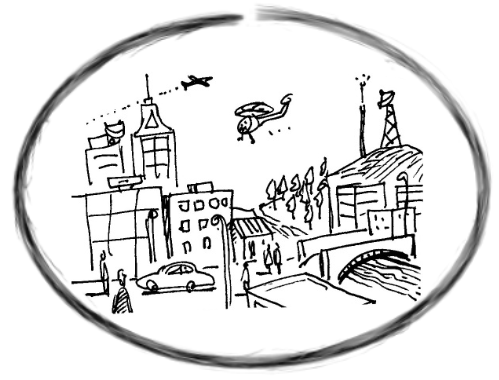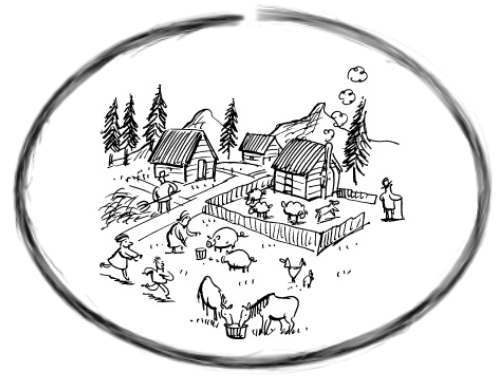| << Chapter < Page | Chapter >> Page > |
Where I live: …………………………………………………………………… and its history:
………………………………………………………………………………………….
………………………………………………………………………………………….
………………………………………………………………………………………….
………………………………………………………………………………………….
Draw or paste pictures that will describe (a) the earlier appearance of your environment, (b) how you want your environment to look like, (c) how it can be improved, and (d) what it should not look like.
a) This is what our environment looked like before people lived there.
b) We would like our town/city to look like this place.
c) Plans we can make to ensure that our descendants will know what the environment looked like before people settled there
d) This is not the way that our place should look like!
A

B

Often people live together in large groups and sometimes they live in small groups. In the country a small cluster of houses and shops is called a village . A village is called a rural settlement .
When the cluster becomes larger and the number of businesses increases, it becomes an urban settlement .
Answer the following questions in your groups:
- the types of buildings
- the work that people do
- what means of transport they use
| Reduces problems in rural areas | Reduces problems in urban areas | |
The learner will be able to use enquiry skills to investigate geographical and
environmental concepts and processes.
We know this when the learner:
1.6 uses information from sources (including own observations) to answer questions about people and places (e.g. “Why is it like that?”);
The learner will be able to demonstrate geographical and environmental knowledge and understanding.
We know this when the learner:
The learner will be able to make informed decisions about social and environmental issues and problems.
We know this when the learner:
3.1 identifies issues associated with resources and services in a particular context;
3.2 identifies the factors that influence why some people have better access to resources compared to others in a particular context;
| Mining town/city | Seaport town/city | Industrial town/city | Tourist attraction |
| Kimberley | Knysna | Sasol | Knysna |
| Koffiefontein | Port Elizabeth | Kimberley | Port Elizabeth |
| Cape Town | Cape Town | Kimberley | |
| Knysna | Cape Town | ||
| Port Elizabeth | Warmbaths | ||
| Skukuza | |||
| Herolds Bay | |||
| Hogsback |

Notification Switch
Would you like to follow the 'Geography grade 4' conversation and receive update notifications?